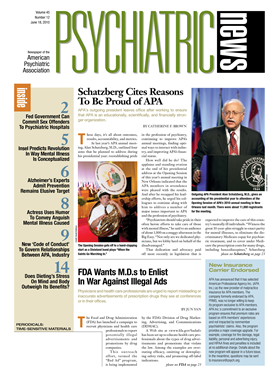The battle of the bulge in America is big: Almost half of all Americans are trying to lose weight at any given time, studies have found.
Yet dieting often does not lead to weight loss over the long term, and it can have deleterious psychological effects—anxiety, decreased self-esteem, depression, irritability, and nervousness. In addition, it can cause both psychological and physiological stress, according to a study reported April 5 in Psychosomatic Medicine.
Ayako Janet Tomiyama, Ph.D., a Robert Wood Johnson Foundation Health and Society Scholar at the University of California, San Francisco, and colleagues launched a study to test the hypothesis that dieting can cause stress. They recruited 121 women who were planning to diet to lose weight, then randomly assigned them to one of four groups for a three-week period.
The first group tracked their calories and restricted their caloric intake to 1,200 kcal/day. The second group was given prepackaged daily meals equaling 1,200 kcal/day but did not track their calories. The third group tracked their calories but ate normally. The fourth group did not track their calories and ate normally.
Subjects in all four groups filled out a psychological stress questionnaire before and after the three-week test period and gave saliva samples before and after the test period to be evaluated for levels of the stress hormone cortisol.
Finally, differences in psychological stress scores and differences in cortisol levels for the four groups were compared, and the researchers also assessed whether possibly confounding variables such as physical-activity level, pain, or stressful life events unrelated to dieting had any effect on their findings.
The two groups that had counted calories experienced more psychological stress at the end of the test period than they had at the start, although the difference was not quite statistically significant. The two groups that had not counted calories did not show a similar increase in psychological stress.
The two groups that had restricted their caloric intake during the test period experienced more cortisol production at the end of the test period than before, and the difference was statistically significant. The two groups that had not restricted their caloric intake during the test period did not show more cortisol production.
At first glance, there seems to be a disconnect between these findings. Why didn't calorie tracking, as well as caloric restriction, produce both psychological and physiological stress responses? The researchers expected that to happen. An explanation for why it didn't happen, they suggested, may be because psychological and physiological stress responses do not always coincide. Another possible explanation, they wrote, is that the psychological stress experienced by their subjects might have translated into physiological stress if they had followed their subjects for a longer period than they had.
Thus it looks as if counting calories produces psychological stress, and restricting caloric intake produces physiological stress. So when dieting includes both activities, it may be, as the researchers concluded, “deleterious to psychological well-being and biological functioning.”
The researchers also suspect that the psychological and physiological stress created by dieting may be one reason why dieters often lose weight over the short term but then gain it back, since chronic psychological and physiological stress are known to cause weight gain. The challenge now, they said, is to test the hypothesis that “dieting is ineffective because it is a stressor.”
Whether or not this is the reason that dieting is often ineffective, the results still have important implications, the researchers believe. “Clinicians may need to rethink recommending dieting to their patients to improve health. In addition to promoting weight gain, chronic stress has been linked with a host of negative health outcomes, such as atherosclerosis, coronary heart disease, hypertension, diabetes, cancer, and impaired immune functioning.”
The study was funded by the National Institutes of Health, National Science Foundation, and American Psychological Association.
